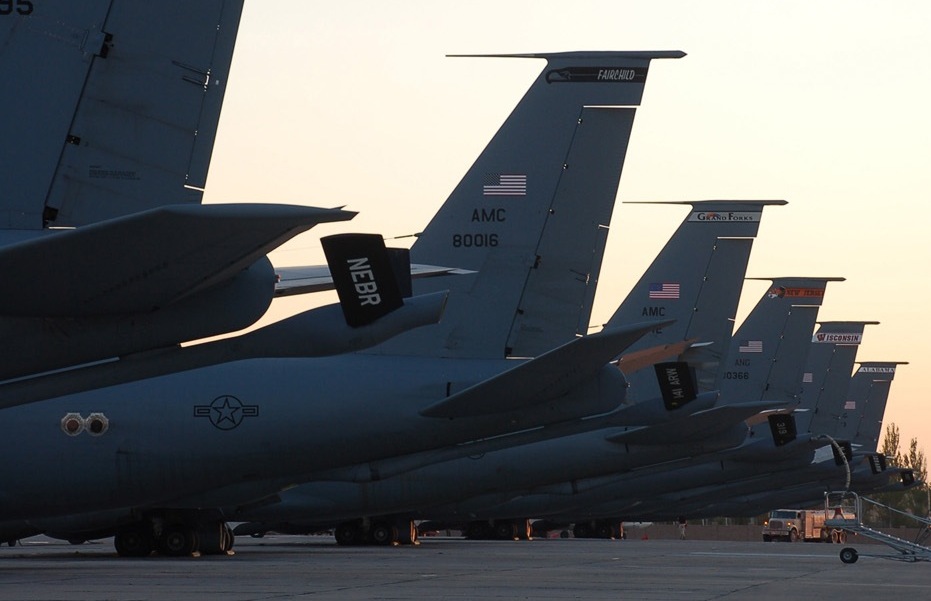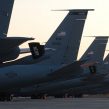
Kremlin Seeks to Alarm Southern Neighbors About Cooperating with the Pentagon
Publication: Eurasia Daily Monitor Volume: 9 Issue: 44
By:

It is well-known that the aggressive foreign policy of Iran’s clerical regime makes Central Asian governments uneasy. Most obviously, Iran and its Caspian neighbors have a longstanding dispute over Tehran’s expansive claims to offshore energy resources. In addition, the Central Asian states have repeatedly rejected Tehran’s application to elevate its observer status within the Shanghai Cooperation Organization to that of a full member. Furthermore, they have limited educational and cultural exchanges with Iranians that could give Tehran opportunities to proselytize radical versions of Islam in Central Asia.
At the same time, no Central Asian government appears enthusiastic about a major US military operation against nearby Iran or about additional UN sanctions on Tehran given their economic ties with Iran. For example, Turkmenistan has such important bilateral projects as the Dostluk Water reservoir, the Tejen-Serahs-Mashhad railway, and the Korpeje-Gurtguyi and Dovletabat-Serahs-Khangeran gas pipelines. Iranians also purchase large quantities of electricity from Turkmenistan (trend.az, February 21).
Kyrgyzstan has minimal economic ties with Iran, but it does host the most prominent US military base in Central Asia at Manas International Airport, which the Pentagon has used for the last decade to support Operation Enduring Freedom in Afghanistan. In December 2011, President Almazbek Atambayev cited the need to end this US presence at Manas because “Iran poses a big threat, whose missiles can easily reach Kyrgyzstan. Just imagine what could happen if Iranians, firing missiles against the US base, were to hit peaceful the population?” (24.kg news agency, December 29, 2011).
Russian officials have sought to play up fears of a confrontation involving Iran by warning Central Asians that the United States could exploit any basing and other military privileges (such as overflight rights) to entangle them in a war with Iran.
In a February 22 media briefing, Foreign Ministry spokesman Alexander Lukashevich warned that “[i]t cannot be excluded that this site [Manas] could be used in a potential conflict with Iran,” which he said would violate the Pentagon’s lease agreement with Bishkek. Lukashevich further claimed that, “[t]he worries are shared not just by Kyrgyzstan – where a debate has erupted about the risk of a retaliatory strike from Iran – but other Central Asian countries.”
The Russian Foreign Ministry has also claimed that the Western powers were exploiting the Iranian nuclear issue to “re-carve the geopolitical map of the large hydrocarbon-rich region that includes Central Asia” (The Hindu, https://www.thehindu.com/news/international/article2932313.ece, February 25).
In his subsequent meeting with Atambayev, President Dmitry Medvedev extended Russia’s warning to other former Soviet republics to encompass Western pressure on Syria since developments related to “the Middle East (around Iran and Syria, and certain other countries) have direct influence on the situation in our region” (www.kremlin.ru/news, February 24). Medvedev called on these governments to cooperate closely with Russia to address this threat: “And Russia considers it extremely important to coordinate with our closest partners and allies our efforts to ensure greater stability [in Central Asia], and especially in this case when negative developments could occur” (www.kremlin.ru/news, February 24).
The US ambassador to Russia, Michael McFaul, responded that the “Manas Transit Center contributes to the international effort to stabilize and secure Afghanistan and will only be used for that purpose” (https://twitter.com/#!/McFaul/status/172405940342104064). Indeed, it is most unlikely that the US would attack Iran from Central Asia given the superior and better-situated US military facilities and platforms in the Persian Gulf. For example, carrier-based aircraft could bomb Iranian nuclear targets without needing to fly through any other countries’ airspace.
Iranians would invariably seek to retaliate for a US or Israeli military strike against Iran, but the most likely targets would be against US interests and allies in Afghanistan, Iraq, Israel and other Middle Eastern countries, but also the South Caucasus, which has already emerged as a battleground between US and Iranian proxies.
It is important to recall that these Russian remarks came in the context of Atambayev’s February 24 visit to Moscow, his first since becoming Kyrgyzstan’s new president in December. Before the trip, Atambayev had focused his remarks on Russia’s failure to provide sufficient compensation to Kyrgyzstan for hosting its military bases (Kyrgyz Kabar news agency, February 24).
According to Kyrgyzstan’s Defense Ministry, Russia owes $15 million for leasing its military facilities, which includes four military bases, a torpedo testing facility, military communication center and a radio seismic laboratory (Rian, February 24). Furthermore, Atambayev told Radio Ekho Moskvy that Russia has failed to train Kyrgyz pilots, as required by their bilateral defense agreements (Rian, February 24, 2012). The media coverage on Kyrgyzstan’s military bases since Atambayev’s return has focused on Atambayev’s repeated insistence that the Pentagon stop using the base after the US lease expires in summer 2014.
Moscow’s war rhetoric is likely to continue even after Putin’s almost inevitable return to the Russian presidency because it helps keep Iran alienated from the United States (preserving the Russians’ dominant economic position there), deepen Central Asian fears about supporting an enduring US military presence in their region (Russia would like the capacity to kill any Western military presence at will as a means of influencing Western actions on Georgia, missile defense, NATO expansion, etc.), and remind Washington and other governments (including Beijing) that the Kremlin still considers the post-Soviet space as a zone where Moscow exercises strategic primacy.




